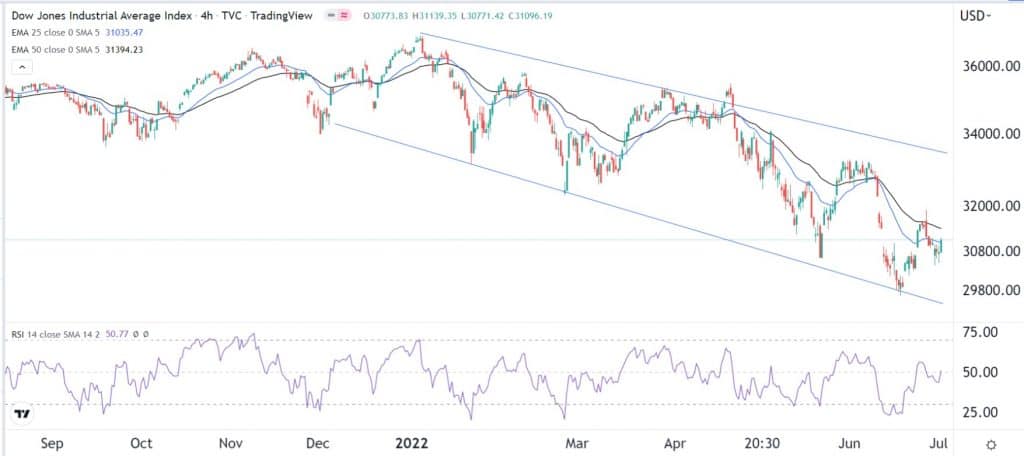The Dow Jones index had a difficult second quarter as investors remained concerned about corporate America. As a result, the blue-chip index crashed by more than 10% in the quarter. The same happened with the top Dow Jones ETFs like the DIA and IYY. Other American indices like the Nasdaq 100 and S&P 500 also dropped by more than 10%.
The Dow Jones index declined sharply in Q2 as investors reacted to the ongoing crisis in Ukraine, the soaring inflation, rising value of the US dollar, extremely hawkish Federal Reserve, and weak corporate earnings.
The war in Ukraine and the sanctions against Russia had a major impact on all these challenges. The crisis and government actions led to a substantial rise in global inflation. For example, the price of energy and other commodities surged. As a result, many companies announced lower margins and weak guidance.
The strong US dollar hit the Dow Jones since most companies have exposure to international markets like Japan, Australia, and Europe. A strong dollar means that American companies earned less money in dollar terms in these international markets. Some of the top DJI constituents that the strong dollar will hit are Nike, Dow Inc, P&G, and Home Depot, among others.
So, will the Dow Jones continue in Q3? Investors believe that the sell-off of American equities will continue until the Fed shifts its tone on interest rates. This could happen in the September meeting. Before then, the index could see more declines as investors react to weak earnings that are expected to start in the next few months.
The worst-performing stocks in the Dow this year are Nike, Walt Disney, Salesforce, Cisco, and Home Depot. All these shares have tumbled by over 30%. On the other hand, the best Dow Jones constituents are Chevron, Merck, Travelers, and Amgen.
The four-hour chart shows that the DJIA index has been moving sideways in the past few days. The index is trading at $31,100, which is at the middle level of the descending channel. It has also moved slightly below the 25-day and 50-day moving averages while the Relative Strength Index (RSI) has moved to the neutral point at 50.
Therefore, for the third quarter, the index will likely remain in a bearish trend as bears target the key support at $29,800, which was the lowest point in June.


In the immediate short-term, the outlook of the Dow is bullish, according to the closely-watched InvestingCube’s S&R indicator. The indicator’s two targets are $31,627 and $31,895. On the other hand, the stop-loss for this trade are $30,775 and $30,408.
This post was last modified on Jul 05, 2022, 09:43 GMT+0100 09:43